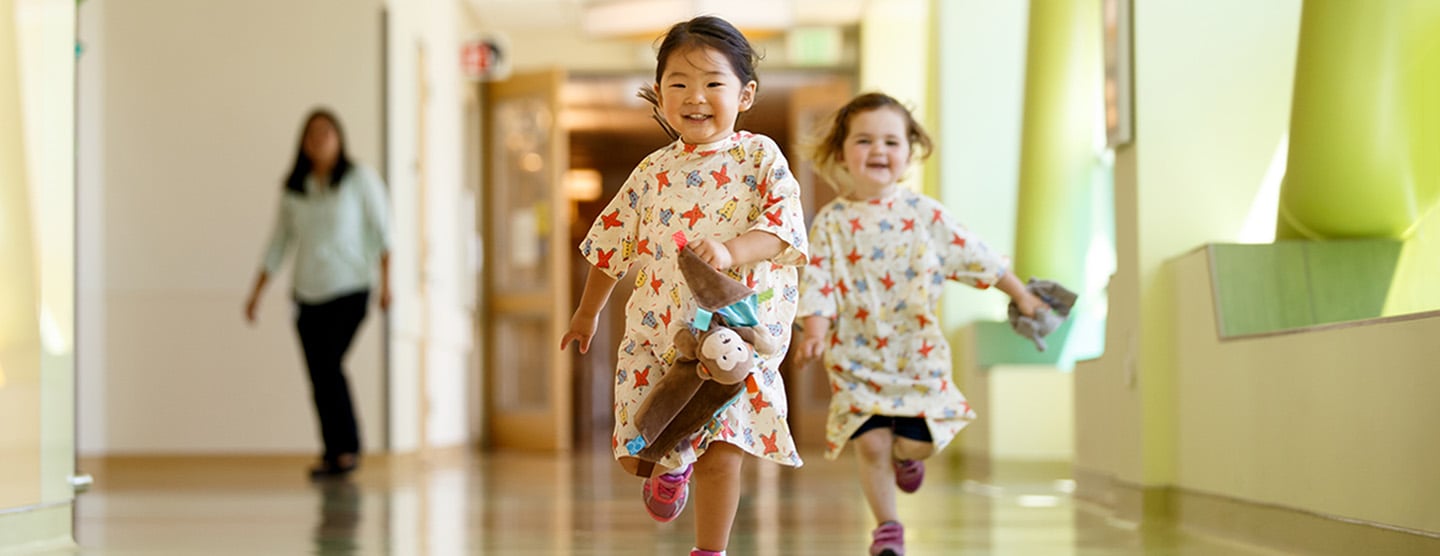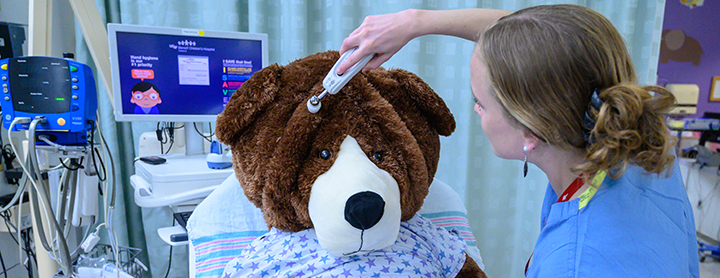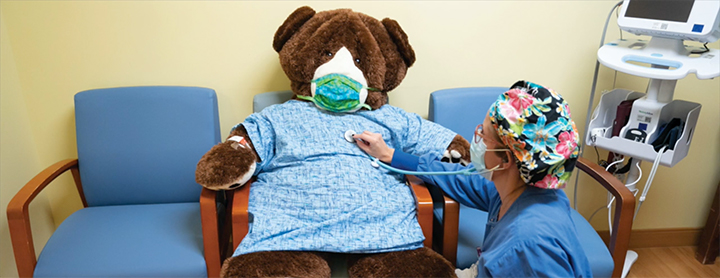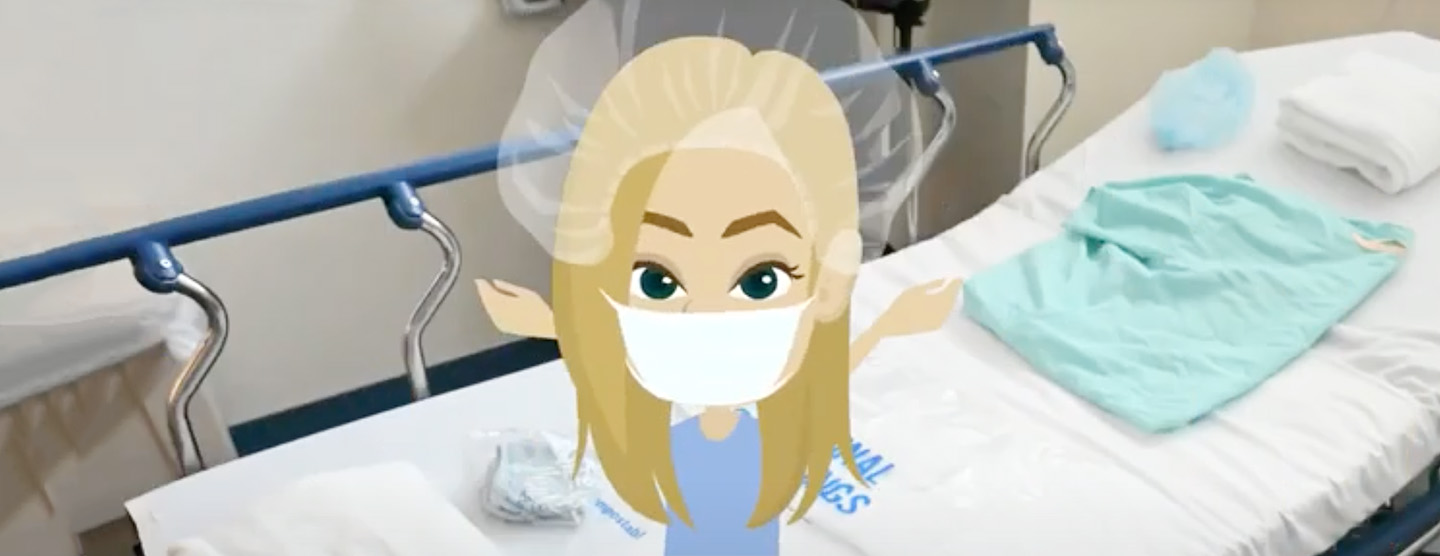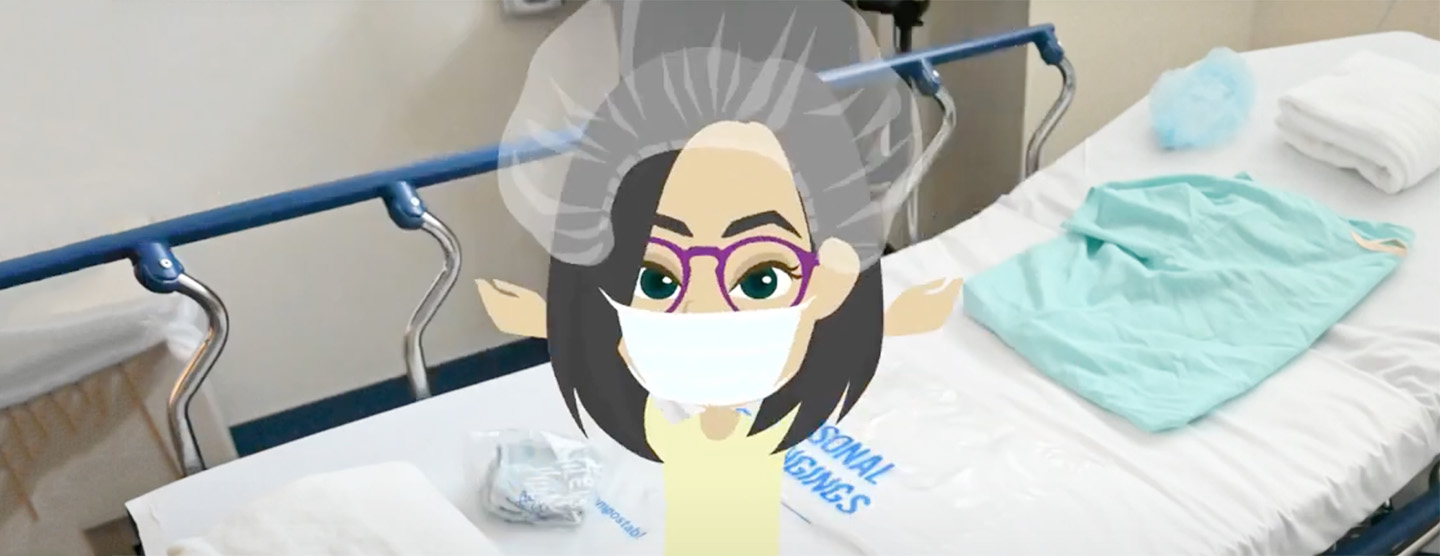Evaluation and scheduling
Your child may need an appointment with the Pediatric Prepare Clinic to perform any necessary tests and check that your child is healthy enough for surgery and anesthesia. This appointment may take place in person or over the phone. During the appointment, the staff will discuss anesthesia and pain relief with you.
The surgeon's office will schedule your child's procedure and let you know when to arrive at the hospital. They'll also provide instructions on how to prepare for the procedure, including when your child should stop eating, drinking and taking medications.
If your child is already in the hospital when surgery is needed, the surgeon will meet with you in your child's hospital room to discuss the surgery and answer your questions. When the surgical team is ready, your child will be escorted into the operating room.
Some patients are able to return home the day of surgery, while others need to remain in the hospital for a night or more. The surgeon's office staff will tell you the likely length of any hospital stay.
Support services
We understand that you and your child may feel anxious or simply have questions about surgery and anesthesia. To help your child feel more relaxed and prepared, our child life specialists may use therapeutic role-playing to go over the anesthesia and surgery experience. If you're interested in meeting with a child life specialist, let your child's surgery team know or contact Child Life Services directly.
Pediatric social workers are also available to talk about specific needs your family may have before and after the surgery. Please ask the surgeon's office staff for a referral to a social worker or contact Social Services directly.
If you'd like to meet with a chaplain before your child's surgery, please contact Spiritual Care Services.
If your child gets sick
If your child develops any signs of illness, including cold symptoms, before or on the day of surgery, please contact the surgeon's office. The surgery team will determine whether it's safe to go ahead with the procedure as scheduled.
How to prepare the day before surgery
It isn't safe to give general anesthesia to children who have food or fluid in their stomachs. For that reason, it's very important to follow the surgery team's instructions on when your child should stop eating, drinking and taking medications before the procedure. If your child eats or drinks too close to the time of the surgery, it will have to be rescheduled. The timing of when your child needs to begin fasting depends on your child's age and medical condition as well as the type of procedure.
To decrease the chance of your child developing an infection, make sure to follow the surgery team's bathing instructions as well.
Review our list of what to pack for the hospital.
For the recovery period, we recommend stocking up on mild, easily digestible foods and drinks that your child likes.
What to expect the day of surgery
You need to arrive at the hospital an hour or two before the surgery's scheduled start time to allow for the registration process and surgery preparation. The Pediatric Prepare Clinic or surgeon's office will let you know when to arrive.
When you get to the hospital, please let our staff know if you need an interpreter during your visit.
During the surgery, you can wait in the Children's Surgical Waiting Area, or, if your child was already hospitalized, you can wait in your child's hospital room. The surgeon will contact you as soon as the surgery is done.
San Francisco Children's Surgical Waiting Area (1975 Fourth St., Second floor, 415-476-0343)
Oakland Children's Surgical Waiting Area (747 52nd Street, Third floor)
Anesthesia
The anesthesia provider will help your child go to sleep in either the operating room or an induction room (a nearby room in which anesthesia is started). In some cases, parents can stay with their child in the induction room.
During surgery, the anesthesia provider will make sure your child doesn't experience pain.
Recovery room
After the operation, your child will be taken to the recovery room, also called the "wake-up room." You may join your child in the recovery room.
Children vary in their reactions following anesthesia. Many children wake up groggy but comfortable. Others wake up crying because they're confused. Our pediatric recovery room nurse will help keep your child as calm and comfortable as possible during this period.
If a hospital stay is needed after surgery, you may accompany your child from the recovery room to the hospital room.
Going home
Your child's care team will decide when it's safe to return home. During the discharge process, they'll provide instructions on how to care for your child at home and when to return to the surgeon's office for follow-up appointments. Don't hesitate to ask as many questions as needed; we want you to feel comfortable taking your child home.
We believe that effective pain management is very important both during hospitalization and recovery. We design an individual pain management plan according to each patient's needs, which can include pain medicine and/or non-medicine treatments. Our goal is to achieve a balance. We take into account medication side effects and the need for patients to be alert and able to participate in their treatments. We believe physical activity can promote healing and help pain, but we also recognize that it can be uncomfortable, especially at first.
If your child's doctor writes a prescription for pain medication, it's important to get the prescription filled immediately and use it as directed. Call the surgeon's office if the medication doesn't control your child's pain.
If any questions or concerns arise at home, please call the surgeon's office.
What to expect during recovery
- Right after surgery, your child may experience nausea and vomiting. This is due to the anesthesia and may last 24 hours.
- Your child may be groggy or unsteady, so plan to stay close by. Your child may also be irritable for the rest of the day and night.
- Children may not feel hungry for a few days after surgery. Don't force your child to eat, but encourage drinking fluids – it may help your child feel better sooner.
- When starting to drink fluids after surgery, most children do better if offered beverages they like.
- It's normal for children to have a slightly elevated temperature – 99 to 100 degrees F – for one or two days after anesthesia. However, it's cause for concern if your child has a fever above 100, redness around the surgical wound, bleeding, vomiting or decreased urination. If your child has any of these symptoms, call the surgeon's office.





























